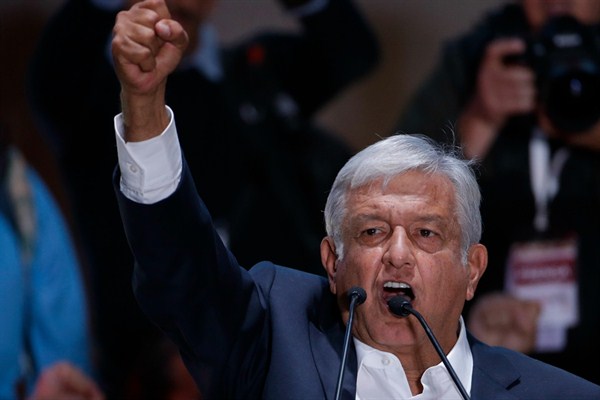The result was almost inevitable, yet Mexico still awoke with a sense of uncertainty Monday as Andres Manuel Lopez Obrador, a veteran leftist and long-time critic of the country’s political establishment, finally captured the presidency in a landslide victory. AMLO, as he is better known in Mexico, fulfilled poll predictions by sweeping aside his rivals, Jose Antonio Meade of the incumbent Institutional Revolutionary Party, or PRI, and Ricardo Anaya of the Citizens Front alliance, winning 53 percent of the vote. His Together We’ll Make History coalition captured majorities in both houses of Congress.
His victory had appeared a mere formality for months, but somehow, it still seemed improbable. He was running for president for the third time, and following his second attempt in 2012, many considered him to be a spent force politically, a dinosaur of the old left. But a creeping sense of dissatisfaction in Mexico—fueled less by recent political developments in the United States, despite the focus on a “Trump effect,” and far more by events at home—enabled AMLO to project himself as the lone voice of change.
AMLO’s victory is immediately significant for two reasons. First, he won by criticizing the market-oriented, centrist consensus, from both liberal and conservative parties, that has governed Mexico for the past 20 years, instead promising grassroots democracy and a greater role for government in the economy. Second, he has something his predecessors lacked: widespread popular support. On Sunday night, the election results were greeted by car horns and street parties for the first time since Vicente Fox toppled the PRI’s 71-year dynasty in 2000. For many, this is a moment of sweeping change for Mexico.

